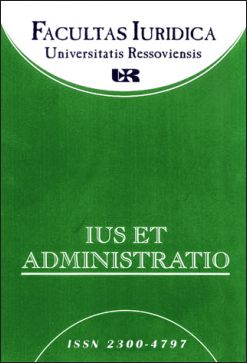Protection of Health as Public Interest Par Excellence in the Slovak Legal System
Keywords:
the right to health protection, forced restriction of ownership right, public interest, inevitable extent, adequate compensationAbstract
The Constitution of the Slovak Republic in Article 40 provides for the right to health protection. The state is obliged to provide its citizens, under the conditions set by the law, on the basis of health insurance, with the right to free of charge health care and sanitary aids. The modern systems providing the citizens’ right to health protection are influenced by three factors: tradition, the level of scientific knowledge and at last, but not least, by the state’s economic possibilities. There exists no social consensus about an optimal organization of the health system. The requirement of establishing a balance between the adequacy of the amount of the invested financial means and the real results of health care, measured in particular in the estimated living longevity, is constantly getting urgent. The state is obliged to provide the largest possible availability of health care in accordance with the newest knowledge of science, research and rational pharmacotherapy. If a forced restriction of the ownership right is inevitable for the achievement of this aim, the state finds a legal basis for it in domestic, community and international law. However, such intervention is legitimate only by keeping four cumulatively determined conditions: admissibility only to an inevitable extent, in public interest, under the law and for an adequate compensation. These legal institutions are legislatively not defined, are always assessed within the context of a concrete matter and are temporarily and locally altering.
Downloads
Downloads
Published
How to Cite
Issue
Section
License
Copyright (c) 2014 Ius et Administratio

This work is licensed under a Creative Commons Attribution-NonCommercial-NoDerivatives 4.0 International License.

